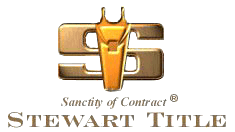|

Click
Here For Complete Mortgage Information

Once a contract becomes binding, you probably will have to arrange for
financing. Depending on the terms of the contract, the purchase of the home
may be contingent on your being able to get financing at certain terms by a
certain date.
Lenders
The REALTOR® might provide you a list of lenders. Most home buyers get loans
through savings institutions and mortgage bankers and, to a Lessor extent,
from commercial banks, credit unions, or other private sources. In some cases,
the seller may be willing to offer financing. Sellers often can offer a loan
to a buyer at a competitive interest rate and attractive terms. Check on
specifics.
Types of loans
In general, three broad categories of loans are available:
-
Private versus government loans - Most mortgage loans are made by
savings institutions, banks and mortgage companies. On government (FHA and
VA) loans, the government does not actually loan the money but rather
guarantees (or insures) to repay the lender if you default for some
reason. Generally, a lender will require you to buy mortgage insurance,
particularly if you make a low down payment. This insurance may be paid at
closing or added to the loan amount. VA loans require no mortgage
insurance, but only qualified veterans may apply for them. Mortgage
insurance protects the lender, to a degree, in the event of default.
Government loans have important advantages - they generally require a
lower down payment than conventional loans and often have a lower interest
rate or points. One the down side, government loans limit the amount you
can borrow, often take longer to process, and sometimes have higher
closing costs.
-
Fixed rate versus adjustable rate - On a fixed rate mortgage, the
interest rate stays the same over the life of the loan, usually 15 or 30
years. That means your payment will not change except for adjustments for
taxes and insurance.
Adjustable rate mortgages go by a variety of names, but basically these
loans have interest rates or monthly payments that can go up or down over
time. These mortgages typically start out with a lower interest rate,
lower monthly payments, and lower fees and points than fixed rate
mortgages. They often appeal to first-time home buyers, younger couples
who expect their incomes to grow in the coming years, and people who might
not have much cash for down payment and closing costs.
If you consider an adjustable rate mortgage, ask the lender to explain
the terms fully. Ask about the interest rate cap; the maximum rate you
will be charged no matter how high rates go in the market. Don't confuse
rate cap with payment cap. When the payment is not enough to cover
interest, the excess interest is added to your principal balance, so your
debt increases instead of decreases. Also ask about the index that will be
used to calculate future interest rates and how index charges will affect
your mortgage.
-
Assumable versus new loan - Some loans, particularly FHA and VA loans as
well as some adjustable rate mortgages, are assumable. That means a buyer
can assume an existing loan usually on the same terms as the previous
owner.
Assuming a loan may save some costs and time. As the buyer, you may pay
the lender a fee at closing for processing the assumption.
The true price of financing
When shopping for a loan, don't judge the loan by the interest rate alone.
Compare several items in the entire loan package, including:
-
Points on a low-interest-rate loan can be double those for a loan with a
higher interest rate, causing you to pay more up front and in cash.
-
Total fees charged by the lender. Some lenders will absorb the cost of
many services, while other do not, so ask in advance.
-
Term. In general, the longer the life of the loan and the more fixed the
payment, the more you can expect to pay over the life of the loan. For
example, a 30-year, fixed-rate loan will cost more in interest than a
15-year, fixed-rate loan.
-
Penalties. Ask what penalties will be charged if you pay off the note
early. A prepayment clause could require you to pay a penalty if you pay
off the loan early, such as refinancing the loan at a later time.
Loan approval process
When you apply for a loan, the lender will ask about your finances. You will
already have most of the facts and figures in the financial information you
compiled earlier. The process can take several weeks.
From the lender's viewpoint, approving the loan is only part of the risk;
the other part is the property itself. The lender may require an appraisal to
verify that the home is worth the loan as well as a physical survey to
discover any encroachments on the property. Repairs may be required. Insurance
must be purchased. Verifications of employment, deposits, and other matters
must be obtained. Loan documentation and conveyances instruments must be drawn
and approved. In addition, the title company must research the title and
arrange for paying off any liens, taxes, and other costs. All these conditions
and other conditions must be satisfied before a transaction can close.
Hazard insurance
As another protection, the lender may require insurance protecting the home
against hazards such as fire and storms. (Flood insurance will most likely be
required if the house is in the flood plain and would be a separate policy.)
Hazard insurance may be included in a homeowner's policy that covers other
risks such as theft and liability. Even if not required by a lender, it is
probably a good idea for you to seriously consider all types of insurance.
Discuss these issues with your insurance agent.


Click Here For Low Rates!
Experience Isn't Expensive,
It is Priceless!
™

Call Center Toll Free Number is (888) 593-1125.
Back
This copyrighted information is provided courtesy of the
Stewart Title Guaranty Company.

|
